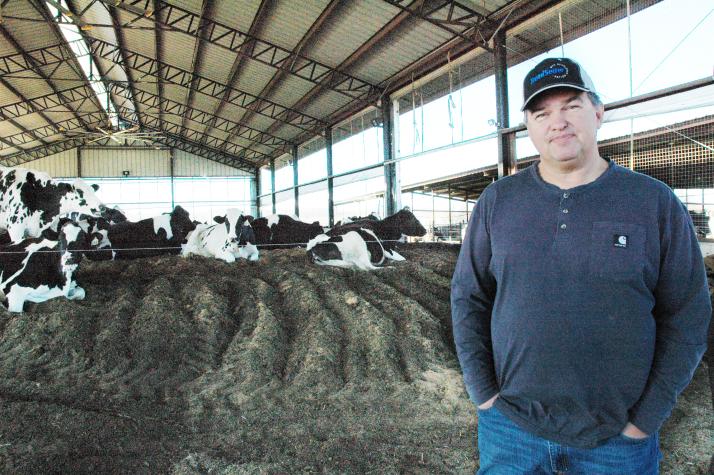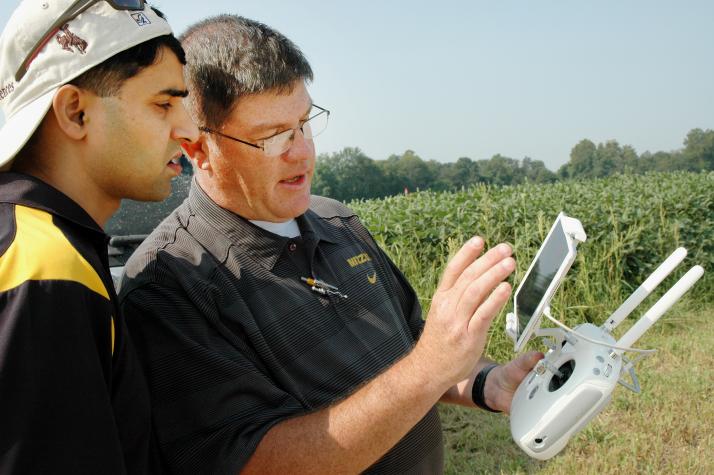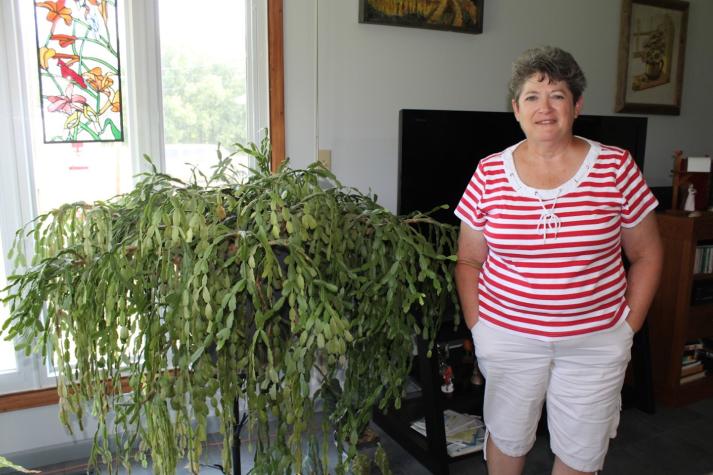
Beware of tax scams
Learn how to spot tax scams, avoid return preparer fraud, identity theft, and false tax claims to protect your finances and personal data.

Grant writing workshop set in Hillsboro
HILLSBORO, Mo. – University of Missouri Extension will hold a Specialty Crop Block Grant workshop 6-9 pm. Monday, Jan. 29, in Hillsboro.

Downtown Hannibal business cooks up success with MU Extension
HANNIBAL, Mo. – In her 20s, Linda Studer had a dream of opening a business in historic Hannibal.

Workshop helps new farmers, ranchers, military vets understand ABCs of USDA, other agencies
ELDON, Mo. – Openings remain for a free Jan. 24 workshop to help beginning farmers and ranchers, including military veterans, learn about resources offered by state and federal agencies.University of Missouri Extension sponsors the workshop.

Compost bedded pack barns offer cow comfort and higher production
Compost-bedded pack barns improve cow comfort, boost milk production, and support herd health with better bedding management.

Pig disease on upswing in U.S.
COLUMBIA, Mo. – Pork producers need to know what to do if a vesicular disease strikes their operation.The Seneca Valley virus (SVV) disease is on the upswing in the United States, says Corinne Bromfield, University of Missouri Extension veterinarian.The Swine Health Information Center reported that diagnostics labs had seen more than 60 cases of SVV from January to June 2016. They reported only 20 cases in the previous 30 years.

Prepare for disease outbreaks in livestock operations with written plan
COLUMBIA, Mo. – A written plan to respond to disease outbreaks for your livestock operation is like insurance. You hope you never need it. You may never need it. But if there is an outbreak, the economic survival of your livestock operation might depend on having that plan.Planning and prevention are the best insurance against an outbreak, says University of Missouri Extension economist Ray Massey.

Tax refund advice: Save some, spend some
COLUMBIA, Mo. – Income tax refunds are ready to roll out. You might want to hold on to some of that cash. Refunds are wages you earn throughout the year and should be thought of as hard-earned money rather than found money, says Andrew Zumwalt, personal finance specialist with University of Missouri Extension. For the wise, a refund windfall is a chance to stash some of the cash in an emergency fund. Use some to pay down high-…

Farm bill action possible in early 2018 if Congress keeps much of present law
COLUMBIA, Mo. – There’s an open window for passing a farm bill in early 2018, says Scott Brown, University of Missouri policy analyst. But potential passage gets tough by late spring.Getting action depends on Congress quickly agreeing to pass a farm bill much like what exists.Mostly, farmers are pleased with current legislation, Brown told the MU Crop Management Conference. But every commodity group has ideas for tweaks to their parts…

Good Agricultural Practices training offered in St. Peters, Olathe
KANSAS CITY, Mo. – Fruit and vegetable growers can learn about produce safety and Good Agricultural Practices (GAP) certification at workshops in early 2018. GAP certification training will be held Jan. 18 and Feb. 16 in Olathe, Kan., and Jan. 26 in St. Peters, Mo.

Improved drone technology gives farmers edge in scouting fields
COLUMBIA, Mo. – Drones are higher in quality and lower in price than they were just a few years ago when farmers began using them, says University of Missouri Extension natural resources engineer Kent Shannon.

Tips for safe snow shoveling
Stay safe while shoveling snow with tips on lifting, breaks, hydration, and proper clothing to reduce strain and injury.

Soil testing kits available at local MU Extension centers
COLUMBIA, Mo. – Submitting soil samples to your local University of Missouri Extension center is easy, says Manjula Nathan, director of the MU Soil and Plant Testing Laboratory. Now is the best time of the year to submit samples to the accredited lab. Soil tests help farmers, gardeners and lawn owners find what fertilizers they may or may not need, says Nathan.

Christmas cactus: A gift that keeps on giving
COLUMBIA, Mo. – The summer they were married, Dan and Earlene Britton received a cutting from a Christmas cactus belonging to Earlene’s grandmother Naomi Ingrum. Thirty-six years later, the Brittons and the cactus continue to do well in spite of coast-to-coast moves and climate changes.

Heifers bring average of $1,790 at Farmington Show-Me-Select sale
Farmington Show-Me-Select sale averages $1,790 per heifer, with top lots reaching $2,450 and strong repeat buyers.

Cold snap brings fescue foot to cows on toxic fescue grass
Cold snaps can trigger fescue foot in cattle grazing toxic fescue, leading to lameness and hoof loss. Early detection helps prevent losses.

Frozen pipes create big problems during cold weather
MARSHFIELD, Mo. – Water has a unique property: It expands as it freezes. This puts tremendous pressure on whatever is containing it, including metal or plastic pipes. No matter the strength of the container, expanding water can cause pipes to break.

Woodland management: Basic forestry tools
Explore essential forestry tools for woodland management, from compasses to chain saws, and learn how each tool helps maintain healthy woodlands.

Woodland management: Understanding casualty losses in timber
With the recent storms that have moved through Missouri, many landowners have been asking how to report the casualty loss of timber on their federal income tax returns. Unfortunately for many timberland owners, the federal tax rules that deal with casualty loss are often difficult to understand and may seem to penalize landowners who have suffered losses from damaged or destroyed timber.

Wood technology 101: Soft hardwood, hard softwood
Discover the truth behind softwoods and hardwoods, and why their names don’t always reflect their actual hardness. Learn more about the science of wood.

Wood technology 101: Basic wood terminology
Radial or tangential? Hardwood or softwood? Springwood or summerwood? Ring porous or diffuse porous? Let’s demystify some of the terms that foresters and wood scientists use to describe wood.

Woodland management: Divide your woodland into stands
To manage your woodland effectively, it should be divided into compartments called stands. Stands are areas of the forest that have similar species composition, soils and topography. Often the term stand is used flippantly to describe an entire forest or boundary. But this broad use of the term indicates a misconception that can seriously impact the effectiveness of any prescribed forest management activity.

Woodland management: Forestry terminology
Forestry is a specialized field of study and has its own vocabulary. As you become involved with the development and management of your woodland, you will often hear or read terms or phrases that might be unfamiliar. Understanding these terms and phrases will help in talking with a forester, understanding technical forestry publications, and provide a deeper understanding and appreciation of your woodlands.

The bid box: Fall 2016
Gasconade County, Missouri54 acres697 trees marked for saleEstimated volume: 93,900 bd. ft. (Doyle Scale)59,900 bd. ft. (445 trees) was white oak; of which 10,500 bd. ft. was potential stave qualityRemaining 34,000 bd. ft.

The bid box: Spring 2017
It is a straightforward bid box this time around.